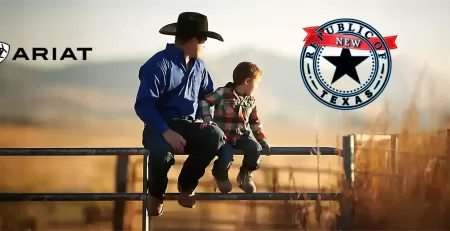John Rambo: From Soldier To Cult Classic Hero
Few characters in film history have left as indelible a mark as John Rambo, the iconic war hero from Rambo: First Blood. Played by Sylvester Stallone, Rambo is more than just an action figure—he’s a symbol of the internal and external battles faced by war veterans, particularly those returning from the horrors of the Vietnam War.
But what turned this character into such a cult classic?
What does Rambo teach us about the mistreatment of veterans and the psychological scars, like PTSD, that they carry?
And how did a man who just wanted to be left alone end up as a symbol of survival, resilience, and justice?
Rambo’s Backstory: A Soldier Forgotten
John Rambo is a former Green Beret and Vietnam War veteran. A skilled and highly trained soldier, he served his country honorably in the toughest and most brutal conditions. But when Rambo returns home from war, he doesn’t find gratitude or respect. Instead, he faces prejudice, hostility, and indifference. The America he fought for seems to have turned its back on him, and the local authorities treat him like a vagrant rather than a hero.
Is this the story of all veterans? Was Rambo’s experience an isolated case, or was it reflective of the wider societal attitude towards Vietnam vets?
First Blood asks these questions without giving easy answers. But the film’s depiction of Rambo’s mistreatment highlights a real issue—one that resonated deeply with audiences when the movie was released.
- Rambo is a Vietnam War vet who returns to a country that no longer appreciates him.
- He’s met with hatred and prejudice by the local authorities, sparking his inner struggle.
Have you ever considered how we, as a society, treat our returning veterans?
The Awareness of PTSD: Rambo’s Battle Within
First Blood is often hailed for its intense action scenes, but beneath the bullets and explosions lies a poignant portrayal of post-traumatic stress disorder (PTSD). John Rambo doesn’t just fight external enemies; he fights internal demons. His flashbacks, emotional outbursts, and uncontrollable rage all point to the psychological wounds left by the war. And while PTSD wasn’t as widely understood when the film first came out, First Blood brought the issue to the forefront of popular culture.
How do you think Rambo’s struggle with PTSD reflects the reality faced by countless veterans?
Could the movie have played a role in increasing awareness about this condition?
- Rambo suffers from severe PTSD, as shown through his flashbacks and emotional breakdowns.
- First Blood was one of the first mainstream films to depict PTSD sympathetically and powerfully.
What would you do if someone you knew was silently battling PTSD, like Rambo?
What could we as a society do to support them?
-
Product on sale
 Animal Ready Pup T-shirtOriginal price was: $29.99.$19.99Current price is: $19.99.
Animal Ready Pup T-shirtOriginal price was: $29.99.$19.99Current price is: $19.99. -
Product on sale
 Ariat Equestrian CapOriginal price was: $29.99.$17.99Current price is: $17.99.
Ariat Equestrian CapOriginal price was: $29.99.$17.99Current price is: $17.99. -
Product on sale
 Attitude Is Everything Sports T-ShirtOriginal price was: $24.99.$14.99Current price is: $14.99.
Attitude Is Everything Sports T-ShirtOriginal price was: $24.99.$14.99Current price is: $14.99. -
Product on sale
 Badboy Outlaw Collection T-Shirt$19.95 – $19.99
Badboy Outlaw Collection T-Shirt$19.95 – $19.99 -
Product on sale
 Branded in Black Lookbook CollectionOriginal price was: $149.99.$119.99Current price is: $119.99.
Branded in Black Lookbook CollectionOriginal price was: $149.99.$119.99Current price is: $119.99. -
Product on sale
 Branded Longhorns Collection T-Shirt$19.99
Branded Longhorns Collection T-Shirt$19.99
Rambo: A Symbol of Survival and Justice
Rambo’s transformation from a quiet, wandering veteran into an unstoppable force of nature is one of the key reasons he became a cult classic.
But what is it about Rambo that resonates so deeply with audiences?
Is it his ability to overcome impossible odds? His refusal to be defeated by a system that betrayed him?
Or is it simply his unrelenting quest for justice in a world that has wronged him?
- Rambo embodies the fight for survival, justice, and personal honor.
- His ability to fight back against authority makes him a symbol of resistance.
How do you feel watching Rambo push back against an unjust system?
Does his story inspire you to stand up for yourself, or to question authority?
Rambo’s Cultural Impact: Shedding Light on the Veteran Experience
While John Rambo’s character quickly became an action icon, First Blood also made a significant contribution to the conversation about how society treats its veterans. By depicting Rambo as both a hardened warrior and a deeply wounded man, the film humanizes the experience of veterans returning from war. It highlighted the struggles they face in reintegrating into society, the stigma they often encounter, and the emotional scars they carry with them.
Could First Blood have helped to change public opinion about veterans?
How much has society evolved in its understanding of PTSD and the challenges faced by soldiers after the war?
- First Blood opened up a dialogue about the mistreatment of veterans and the trauma of war.
- Rambo’s character has become a symbol of veterans’ rights and a reminder of the psychological toll of war.
Did Rambo’s story make you think differently about veterans?
Do you think his story still holds relevance today?
John Rambo’s Enduring Legacy
John Rambo is more than just a cinematic legend—he’s a cultural touchstone. Through his story, First Blood brought awareness to the mistreatment of veterans and the struggles of PTSD. His resilience and refusal to be broken by an unjust system make him a timeless symbol of survival. And while we may remember Rambo for his incredible action scenes, we must also remember him for what he represents: the hidden battles faced by veterans every day.
So what’s your take on John Rambo?
Does his story still resonate with you today?
Let us know in the comments!
If you enjoyed this review, make sure to like this video and subscribe for more deep dives into iconic characters and the stories that shaped them.



LEAVE A COMMENT
You must be logged in to post a comment.